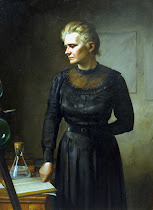Summary by Dirk and Ruben of Theodore M. Porter's "The Death of the Object: Fin de siècle Philosophy of Physics," in D. Ross (ed.), Modernist Impulses in the Human Sciences, 1994.
Porter attempts to describe how science obtained the adjectives that it has today, namely impersonal, univocal, and authoritative. With the conception of "the death of the object," Porter wants to illustrate that descriptionism (see Heilbron) was not a defensive turn from realism in a period of crisis in physics, but an optimistic and positivist attempt to define science to encompass both physical and mental phenomena, while introducing an universal scientific method. It made knowledge a matter of convention and boundaries seem artificial, not to exalt subjectivity, but to increase certainty. He illustrates this by Ernst Mach and Carl Pearson, while putting them in the historical context of late nineteenth century physics.
In the late nineteenth century realism was questioned. Time, space, force etc. were concepts which gradually descended from their absolute realist position to a position of conventionalism. Description started replacing causal explanation. By giving up metaphysics and relying instead on mathematical description, physical theory was to become like pure mathematics.
 Ernst Mach (1838-1916) argued that scientific knowledge was economical and consisted of the connection of appearances. Its ultimate product was not the knowledge itself, but control. No distinction could be made between subject and object, therefore scientific claims could be about physical objects as well as human actors. The common basis of all knowledge lay in the immediacy of experience. According to Mach, human intimacy with nature permitted successful science. Max Planck, however, found it imperative that the outside world was something independent from man, something absolute. Mach's denial of real objects in physics was held up as the foundation for objective knowledge in the human sciences.
Ernst Mach (1838-1916) argued that scientific knowledge was economical and consisted of the connection of appearances. Its ultimate product was not the knowledge itself, but control. No distinction could be made between subject and object, therefore scientific claims could be about physical objects as well as human actors. The common basis of all knowledge lay in the immediacy of experience. According to Mach, human intimacy with nature permitted successful science. Max Planck, however, found it imperative that the outside world was something independent from man, something absolute. Mach's denial of real objects in physics was held up as the foundation for objective knowledge in the human sciences.
 Carl Pearson (1857-1936) was a Neo-Machian, according to Porter. He also insisted on a unified science encompassing more than the physical world, yet went further in his development of a scientific method and its uses. For Carl Pearson, science knew no limits and he defied the traditional boundaries of politics, religion, and even the human skin. His scientific method consisted of the classification of facts, the comparison of their relationships, and finally the discovery of a formula or scientific law. The scientific method could help solve social problems. Because everybody could learn this method it required no more than good education to obtain good citizens. Individuality was sacrificed for the public good.
Carl Pearson (1857-1936) was a Neo-Machian, according to Porter. He also insisted on a unified science encompassing more than the physical world, yet went further in his development of a scientific method and its uses. For Carl Pearson, science knew no limits and he defied the traditional boundaries of politics, religion, and even the human skin. His scientific method consisted of the classification of facts, the comparison of their relationships, and finally the discovery of a formula or scientific law. The scientific method could help solve social problems. Because everybody could learn this method it required no more than good education to obtain good citizens. Individuality was sacrificed for the public good.
Porter shows how science expanded beyond all limits by associating itself with appearances. The death of the object resulted in the disintegration of the subject, resulting in the possibility of universal experience, consensus and an quantification and objectification of knowledge. Late nineteenth century philosophy of physics was not in a crisis, but resonated in a wider culture yielding an increase of certainty. Mach’s adoption of the principle of economy and the influence of Pearson on the Social Sciences through statistics illustrates the cross-fertilization between the different disciplines.
Remarks and criticism
According to Porter, descriptionism was an optimistic attempt. The ‘revolt against positivism’ is almost neglected in the paper, while the role of the positivists is exemplified. Naturally, a crisis in physics is absent in scientists with a optimistic, exuberant view of physics. His sources and perspective defined the outcome of his question. A stronger case would have been to include more examples of confident scientists in the late nineteenth century, who were oblivious to a crisis. Porter, furthermore, does not illustrate an ‘efflorescence of competing conceptions of the proper foundations of physics’. Also, the example of Boltzmann can hardly be seen as unproblematic for physics. Michelson’s ‘remarkable complacency’ in precise measurement is not convincing either. Nineteenth century thought moved away from ontological realism to relational conventionalism, why change if there was no crisis? Furthermore, offence may be the best defense.
How do Fechner’s and Mach’s psychophysics and monism as holistic principles relate to scientific knowledge understood as to economize on thought, the disregarding nature except insofar as humans interact with it, and Mach’s razor? Is Pearson’s rigid scientific method not a narrowing down and reduction of our knowledge?
How to practice psychophysics, Mach does not give us a scientific method, nor a political use of his theory. Does that make his monism unconvincing, yet politically and ethically, regarding Pearson, admirable?
Pearson does not make a classification of the material of science. He does not apply his own method to the field of science. Is this an insuperable objection to his view on science?
Why is measuring essential to descriptionism, and does it really remove sources of controversy?
 3
comments
25 February 2008
3
comments
25 February 2008






